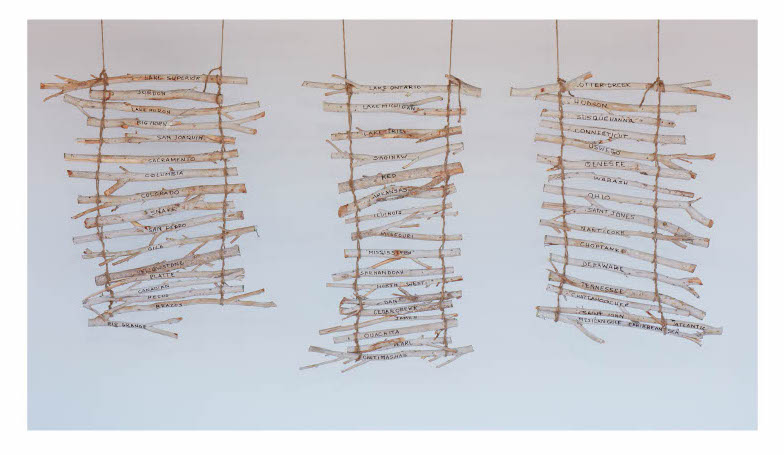In Post Traumatic Slave Syndrome: America’s Legacy of Enduring Injury and Healing (2005), Dr. Joy DeGruy writes “Although slavery has long been a part of human history, American chattel slavery represents a case of human trauma incomparable in scope, duration and consequence to any other incidence of human enslavement.” Such a statement testifies to the generational wounding that comes from a culture being raped and exploited based on the social construct of skin color. “Stolen Identities: River Routes to Freedom,” an exhibition of two- and three-dimensional works by Deborah McDuff Williams at the Center for Social Justice & Civil Liberties expands on Degruy’s eye-opening perspective. “Stolen Identities” inspires transformative healing within a safe space that provides a context for solution-oriented conversations about the past and present current social, political and economic challenges faced by Black folk throughout the diaspora.
For example, Crossroads (2017) suggests the reality of “self-determination”—when the enslaved decide that extreme times call for extreme solutions. Draped over a bamboo easel is a square of cream and burnt sienna-colored fabric, adorned with a cross of buttons in the center and diamond-shaped patches of spirograph-printed cloth in each corner. The piece illustrates how Williams seeks to represent the multiple ways of addressing Black resistance to captivity. Like her predecessors Faith Ringgold and Emma Amos, William’s choice of a fabric medium allows her to initiate tactile conversations with viewers.
In a similar vein, RiverRoutes (2017), a mixed media piece composed of found wood and twine, addresses the various escape passages used by African slaves. Being born into such brutal times required more than just the ability to delineate one’s enslaved condition, unlike the 21st century’s current tribe of race hustlers who profit from Black Trauma by only describing the problems faced by folks of color, rather than confronting it. Williams’ piece underscores how the masses back in the day were mobilized and empowered to free and lead themselves—living out what Malcolm X articulated as action by any means necessary.
“Stolen Identities: River Routes to Freedom” is not only worth viewing but also, reflecting over. As Paulo Freire stated in Pedagogy of the Oppressed (1968), “Without a sense of identity, there can be no real struggle.”
The Center for Social Justice and Civil Liberties
3855 Market Street
Riverside CA, 92501


